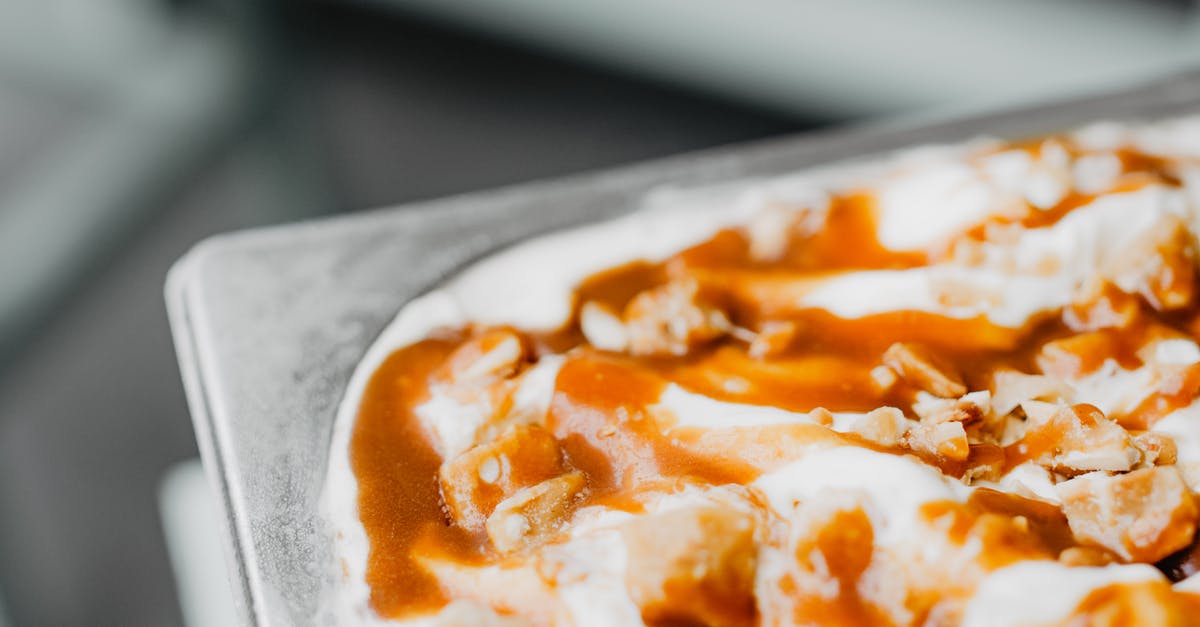Dairy-free bechamel?

My toddler recently developed a bit of intolerance to lactose. However, some of his favorite meals are moussaka and lasagna, not the least because the bubbly intensely flavored bechamel topping that roasts up in the oven. Typically for these recipes, I make a traditional white sauce or bechamel by melting butter and mixing in flour and cooking it out with very little color, then progressively whisk in milk until the sauce coats a spoon, then the final result is tempered with 3 eggs and shredded parm so that the baked product solidifies.
I can't find any suggestions on the internet for replacing the milk, butter, and cheese. Would olive oil in lieu of butter, and water or a nut milk (walnut or pine nut) instead of cow's milk, and omitting cheese suffice as a replacement? Is there any reason to believe the ratios would be out-of-balance using these substitutes?
Best Answer
Butter: Butter is an emulsion of fat and water (more or less)—it is typically around 80-82% fat (European butters tend to have a little more fat, American butters tend to have a bit less)—and this fat is solid at room temperature. This suggests that a good substitute for butter would be another solid-at-room temperature fat (such as coconut oil, lard, bacon grease, etc), plus a little bit of water.
Personally, I have had luck with coconut oil and a splash of coconut milk when cooking for vegan friends, but this leaves the sauce tasting a little coconutty. Lard or bacon grease will similarly flavour the sauce, but this may not be a negative—macaroni and cheese with bacon, for example, is a great combination. Olive, canola, and peanut oils have also worked for me in the past, but result in a slightly different texture at the end of the day (which you likely wouldn't even notice in a casserole like moussaka or lasagne).
That being said, butter has very little lactose in it. A lot of people who are lactose intolerant do not have difficulty with butter. It might be worth experimenting with your child to determine whether or not butter is a problem (e.g. go through the process of an elimination diet, and add butter back into the diet in a controlled manner to see if is tolerated).
Milk: As noted above, I have had good luck with coconut milk. Because the phrase "coconut milk" can be ambiguous, I specifically mean something like Thai Kitchen's unsweetened coconut milk. It should be noted that this has a much higher fat content than dairy milk, so you may want to water it down a bit. Nut milks, soy milk, or oat milk should also work well—you are really just looking to get something that is mostly water with a bit of fat in it.
You could also consider lactose-free milk. There are a number of commercially available brands of lactose-free dairy milk, which are made by treating milk with with the lactase enzyme (this is an enzyme which breaks down lactose, and is produced naturally by most people—lactose intolerance is generally the result of a person's inability to produce lactase).
Another alternative would be to consider the milk of another animal—my understanding is that there is some anecdotal evidence that goat's milk is often better tolerated by people with mild lactose intolerance. Goat's milk has about as much lactose as cow's milk, but is apparently otherwise easier to digest. Again, experimentation with an elimination diet might prove fruitful. On the other hand, goat's milk has a rather distinctive flavor which many people find off-putting, so maybe not.
Cheese: I have never found a non-dairy cheese which I thought was any good. There do exist vegan cheeses, some of which even seem to melt like dairy cheese, but I (personally) find them all to be quite bland and unappealing. They compare favorably to Kraft singles, but that seems to be damning with faint praise. That being said, taste is personal, and your milage may vary. Vegan cheeses are meant to replace dairy cheese in a one-to-one manner, so if you find a vegan cheese you like, it should
On the other hand, cheese often has far less lactose than milk, and the longer a cheese has fermented and aged, the less lactose it is likely to contain. I am not sure what to do about the ricotta in a lasagne (assuming that you use ricotta in your lasagne), but the parmesan should be well-tolerated as it typically contains almost no lactose. For other cheeses, as a rough rule of thumb, the older and harder a cheese is, the more likely it is that it will be well-tolerated by a person with lactose intolerance.
Again, an elimination diet might be in order.
Pictures about "Dairy-free bechamel?"



Can I make béchamel with lactose free milk?
This simple and creamy lactose-free b\xe9chamel sauce recipe is a white-sauce lover's dream! Our lactose-free version of the classic white sauce is made with LACTAID\xae lactose-free milk, so you can enjoy your favorite homemade pasta and potato dishes without discomfort.How do you make something creamy without dairy?
Key TakeawaysCan you use water instead of milk for béchamel sauce?
Since the absorbency of different flours can vary, it is difficult to specify the exact quantity of liquid needed, so add just enough water or milk to achieve the required consistency.Can you make roux with almond milk?
To make a creamy white sauce using this light brown roux, slowly whisk in 2.5 cups of almond milk. After the milk is incorporated, stir in salt, pepper, and minced garlic. You can also use this roux to make gluten free alfredo sauce recipe with parmesan mixed and melted in!Easy Vegan White Sauce (Bechamel) | Dairy-Free, Gluten-Free Creamy Sauce
More answers regarding dairy-free bechamel?
Answer 2
If we are talking about lactose intolerance (as opposed to some other issues like a genuine allergy), note that all the dairy products for your Béchamel are available as lactose-free version in most supermarkets.
Other (non-dairy) substitutions would work - any combination of flour heated in fat and then used to bind a liquid will give you some kind of Béchamel-like sauce - but need more effort to come close to the original flavor-wise, and so the easiest opinion for me would be to pick the lactose-free dairy product. I might be biased by having raised the poster child of a picky eater, but with a toddler, I would go the easiest route before experimenting with milk alternatives like plant milks when the milk is a main ingredient in a dish.
Answer 3
I have made bechamel many times using oil (olive or something more neutral tasting) in the roux, and then using an unsweetened 'coconut milk beverage' (the stuff sold in cartons that's thinned to the consistency of cow's milk and may have gums or other thickeners in it). I typically use Trader Joe's brand.
It might be the exact same flavor, but you can get the creamy texture that you're looking for.
I'm not making a cheese sauce, so I can't comment on that aspect of it, but I have had some rather good vegan cheeses when a friend picked it up for us to make pizza with.
Answer 4
A nutritional yeast "cheese" sauce is fairly similar to a bechamel. This one from Bob's Red Mill is basically a vegan bechamel with nutritional yeast flakes added. For more flavor, you could use a nondairy milk or broth instead of water. You could definitely just add some yeast flakes with the flour in your regular sauce recipe.
You can get a thicker, creamier sauce by adding pureed raw cashews. If your recipe usually has ricotta cheese, adding cashew puree to the sauce will help cover for the missing ricotta. Here's a recipe. Soak the cashews in water overnight, then puree them and add them to the sauce. You'll want a good quality blender or food processor to get the sauce nice and smooth. If you have only a mediocre quality blender, put the cashew puree through a sieve to get rid of any remaining chunks.
Omitting the dairy from a cheese sauce makes it rather bland, so vegan cheese sauce recipes usually include mustard and/or white miso paste for more flavor and umami. A bit of garlic powder helps, too.
In making bechamel sauce with bacon fat or oil, I find the roux tends to split and seem greasy. I compensate for that by using a slightly lower proportion of fat than I would use of butter. I haven't experimented with coconut oil.
I prefer almond milk when I need a nondairy milk to cook with. It's a fairly neutral taste, unlike coconut milk. Soy milk gets an unpleasantly strong, "beany" taste when warmed.
Answer 5
Lactose free milk is available almost everywhere.
Butter contains only small amounts of lactose (just look at the carbohydrate content) and you don’t need that much. In some places you can nonetheless buy lactose free butter.
Aged cheese contains very little to no lactose (again, just look at the carbohydrate content, lactose is a carbohydrate, if the cheese has close to zero carbs it can’t have lactose).
Answer 6
Basically, you can just replace butter with any other kind of fat, replace milk with water and leave out the eggs and cheese. It's really that easy. It won't taste the same, but come reasonably close in many aspects.
Personally I like to add some nuts (like ground almonds for a relatively strong taste, blended soaked cashews for something more mild) and spices (mostly those which would traditionally go in Béchamel, but use slightly more and maybe add some others which you are familiar with and know how to dose), you can't do much wrong like that. If you want to use it for a crust, use some heat-resistant fat like coconut (refined so it has no coconut flavour) or rapeseed (not any rapeseed, but there are high-temperature cultivations).
It's possible to go for a cheesy flavour using yeast flakes and a sour ingredient (lemon juice, vinegar, ...), but for easy, good results I wouldn't recommend it - it's too easy to completely ruin the taste if you get the amounts just slightly wrong.
If you really want the cheesy taste without cheese, the only thing that I've found to work is cultured vegan cheese (for example based on fermented cashews, not the un-cultured vegan cheeses your super market likely has) or possibly soy-cashew-yoghurt (self-made, store bought won't have a strong taste), but that's a huge amount of work for just some Béchamel.
Answer 7
From personal experiences I highly recommend replacing the milk and butter with the vegan substitute for cream, I use the the soy milk one and add a pinch of salt.
I don't know how sensitive your toddler is to lactose, but Parmesan is almost completely lactose free due to its long ageing process, so it should be safe to use.
Generally, no hard cheese should be problematic to digest, because of the cheese making process. A good amount of the lactose is being removed in the process. The remaining amount of lactose depends then on how long the cheese ages, because the bacteria slowly destroys parts of it.
That lactose is destroyed by heat is a myth, as lactose is just another word for milk sugar and sugar can't be destroyed by heat.
Answer 8
I have made vegan beschamel before, using margarine instead of butter in the roux. I used soy milk instead of actual dairy. Although I considered it a success it really wasnt a beschamel. I would rather call it a vegan cream sauce. Beschamel is a specific type of sauce that is considered a base sauce and has a fundamental part in traditional French cooking, calling what I made a beschamel is being more loose with the term than what I would consider proper.
This offcourse does not make this sauce bad in any way. We should give it an accurate title. Some tips, get as raw a soy milk as you can. I did not like this sauce when I used sweet soy milk. The flavour just came of too artificial for my tastes. I have also found that a higher fat margarine also does well to substitute some of the fats that you would get from the dairy.
If you want to make a lactose free moray you can consider grated goats cheese, goats cheese is naturally lactose free. Although I have no experience with this. Just be warned goats cheese can be pretty wild, really strong flavours. How appropriate this would be for baby food is also something I'm unsure of.
Sources: Stack Exchange - This article follows the attribution requirements of Stack Exchange and is licensed under CC BY-SA 3.0.
Images: ROMAN ODINTSOV, ROMAN ODINTSOV, ROMAN ODINTSOV, ROMAN ODINTSOV
